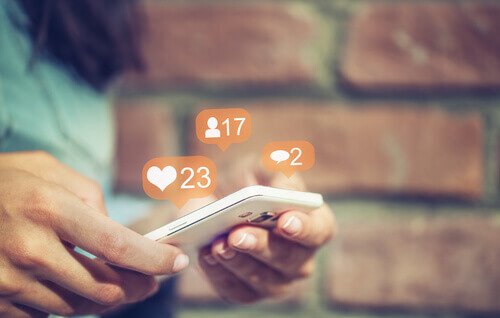(Exploring your Mind) During a conversation with someone, you’ve probably had to compete for their attention with a technological device and lost. Maybe the person in front of you diverted their attention to their latest “urgent” notifications. They’ve probably even interrupted your conversation to answer a call, answer a text message, or check their social media.
Related Various Countries Ban WiFi and Cell Phones Around Young Children, Schools: the Infertility Crisis
by Staff Writer, April 5th, 2019
Have we forgotten what it means to have a conversation? Do we get bored listening to others and only seek attention when we need comfort or help?
Clinical psychologist and sociologist Sherry Turkle has conducted extensive research on the subject that she shared in her book Reclaiming Conversation: The Power of Talk in a Digital Age (2015). In this book, she stated that teenagers have reduced their empathetic capacity by 40%, as well as their ability to engage in deep conversation, and that cell phones are to blame.
Buy Book Is My Cell Phone Bugged?: Everything You Need to Know to Keep Your Mobile Conversations Private
New technologies have created a world in which people are hyperconnected at all times at a superficial level. Multitasking is very common, and many feel that they shouldn’t take too many breaks.
“True love is a lack of desire to check one’s smartphone in another’s presence.”
-Alain de Botton-

I share, therefore I am
Nowadays, a large part of social and work-related interactions occur through electronic means, such as computers, phones, and tablets.
Face-to-face conversations have been relegated to the background, and some people even see them as a waste of time. If you have to solve a business problem, you send an email. If you want to ask for forgiveness, you write a text message.
Since facing conflict or emotional situations can generate anxiety, new technologies offer the possibility of reducing some of it. Young people justify using new forms of communication as an easier and faster way to express their thoughts. They say that mobile devices allow them to rewrite what they want to say, correct mistakes, or avoid tense situations that they wouldn’t know how to solve in person.
The problem is that screens don’t allow us to enjoy one of the most enriching parts of conversation: non-verbal language. We miss out on gestures, intonation, looks, and real emotions. This is quite worrying because, according to experts, 70% of communication is non-verbal.
Human interaction has been replaced with “memes” or emoticons. It’s even hard for people to maintain deep conversations for extended periods of time.
Lack of empathy
As a result, humans now have a lot of difficulties in managing their emotions, facing difficulties, and carrying out responsibilities. If you don’t share content on the Internet, it’s like you don’t exist. If you don’t share your vacation on social media, people may believe that you didn’t actually take it or that you didn’t enjoy it. Therefore, what you share is a reflection of who you claim to be, but not who you really are.
Buy Book The Art of Empathy: A Complete Guide to Life’s Most Essential Skill
Under these circumstances, it’s harder to empathize with others and put yourself in their shoes to try to understand their emotions and thoughts. The world is becoming purely visual and superficial.
Furthermore, there’s a great demand for new and constant stimulation. If you’re bored in class, your cell phone is the perfect distraction. The same happens during boring moments in a TV show, movie, or book.
“You need to build an ability to just be yourself and not be doing something. That’s what the phones are taking away.”
-Louis C.K.-

Conversation is now endangered
Spaces that used to present opportunities to engage in conversation no longer fulfill this function. On buses or subways, many people look at their phones. In line at supermarkets and stores, people wear headphones and check their social media feeds.
People don’t talk and, if they do, they talk about what they see on their phones. We’ve become soundproof machines. We don’t pay attention to what’s happening around us, nor do we talk to strangers next to us. Instead, we jump from one application to another, trying to kill the disturbing silence.
Although we have thousands of social media followers we can exchange “likes” or start chats with, we get bored after a few minutes. This is because we’ve become perpetually dissatisfied and unable to build authentic relationships. How can we expect to learn how to listen if no one is teaching us the value of conversation and empathy?
Buy Book I Am Your Mirror: Mirror Neurons and Empathy
Where has our ability to feel deeply gone?
In this fast-paced world, hyper-connectivity and multitasking are the standards. While you answer an e-mail from your boss, you might be checking a friend’s latest Facebook post as well as the weekend’s weather forecast. While you’re reading a book, you keep your cell phone nearby to immediately answer any text messages you might receive.

We ask our children not to use their cell phones at the table, but if we receive a phone call, we answer at once. Although we’re anxious about the fact that we have to be constantly available online, we also become anxious when we “disconnect” for too long.
Some companies seem to judge their employees according to their availability and willingness to be perpetually connected to their work networks. In this regard, your boss might fire you if you don’t answer an e-mail at 11:00 P.M.
It hurts when you know someone read your message but didn’t reply. Some people even anxiously check to see when their friends were last online.
Do new technologies really make us more efficient? Are your best friends those who answer quickly, even if they limit their responses to superficial emoticons? We’re confusing speed and quantity with quality and value.
“If content is King, then conversion is Queen.”
-John Munsell-
We don’t need more cell phones, we need more spaces to talk
Small moments of disconnection help people reconnect with their own thoughts. These moments also offer spaces to really talk and listen without cell phones getting in the way.
People build and reinforce their connections during face-to-face conversations. This is because you can see how the other person feels and listen to their ideas and concerns. You can empathize with them because you can see their joy or suffering with your own eyes.
Deep, personal conversations awaken emotions inside you. They give you a space to open up and vent, to be heard and respected.
Stillness in the Storm Editor: Why did we post this?
Consciousness is one of the most mysterious phenomena of all time. Scientists, philosophers, and mystics have been searching for the answer to the question, What is Consciousness? for most of human history. In modern times, the spiritual origins of consciousness are being replaced with a materialistic view, that awareness emerges as an additive property of electrical impulses in living things. Despite the fact this theory is assumed to be true, any self-respecting psychologist will tell you we have no idea what consciousness really is. The preceding article discusses consciousness, some of its properties, and possible origins. This is helpful to contemplate because, in the act of trying to understand the mysteries of consciousness, you develop critical thinking skills and stimulate your philosophic muscles, both which are immensely important for almost everything we do in life. Additionally, you’ll develop abstract thinking skills, the ability to explore intangible realities that govern material realms. With the power of an active mind capable of navigating the realities of consciousness, great leaps in personal attainment can be made along with preparing you for the Great Work of making this world a better place.
– Justin
Not sure how to make sense of this? Want to learn how to discern like a pro? Read this essential guide to discernment, analysis of claims, and understanding the truth in a world of deception: 4 Key Steps of Discernment – Advanced Truth-Seeking Tools.
Stillness in the Storm Editor’s note: Did you find a spelling error or grammar mistake? Send an email to [email protected], with the error and suggested correction, along with the headline and url. Do you think this article needs an update? Or do you just have some feedback? Send us an email at [email protected]. Thank you for reading.
Source:
https://exploringyourmind.com/cell-phones-can-damage-relationships-and-create-a-lack-of-empathy/

Leave a Reply